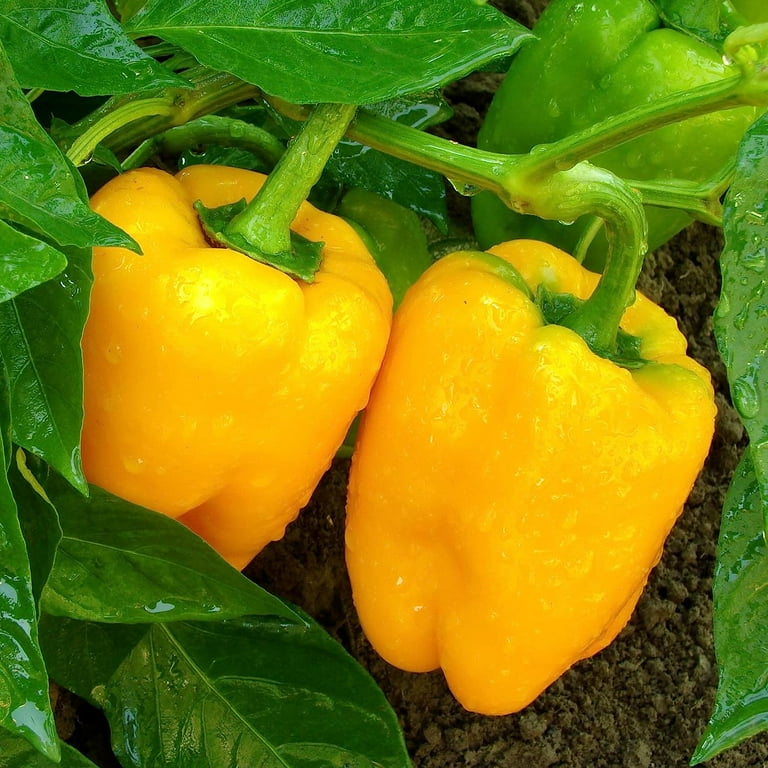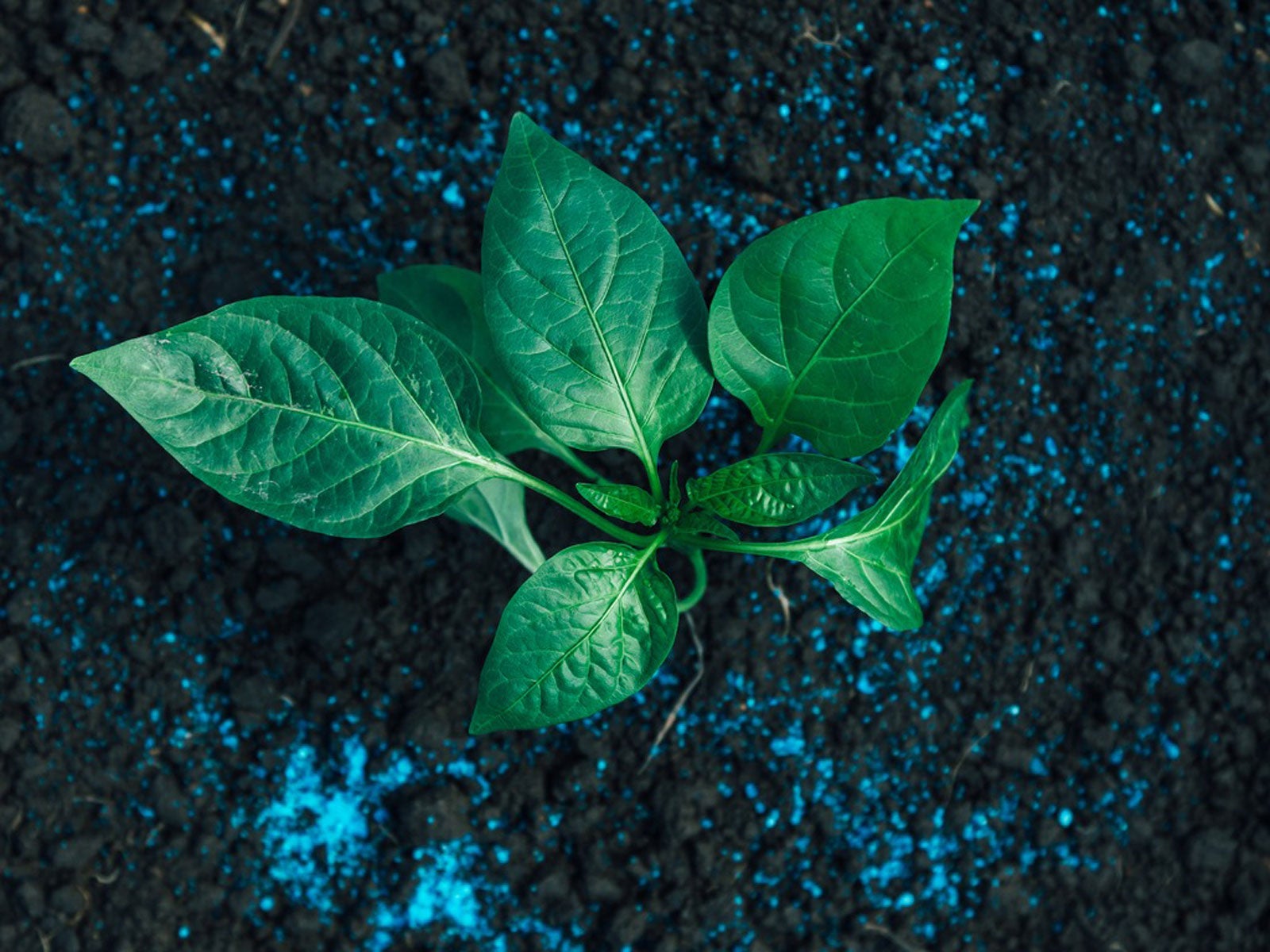Organic Vs. Synthetic Fertilizers: Which Is Best for Supporting Healthy And Balanced Pepper Plants?
In the realm of supporting healthy pepper plants, the selection between natural and artificial plant foods stands as a crucial choice with far-reaching effects. While both choices goal to give essential nutrients to support plant development, the nuances of their influence on the soil, plant wellness, and the atmosphere stimulate an argument that mirrors throughout the gardening neighborhood. Recognizing the distinct benefits and possible challenges of each fertilizer kind is crucial for pepper cultivators seeking to enhance their yields while keeping an eco-conscious and lasting approach.
Advantages of Organic Fertilizers
Organic fertilizers provide a lasting and environmentally-friendly technique to nourishing pepper plants, offering vital nutrients without making use of synthetic chemicals. These all-natural fertilizers are originated from natural resources such as garden compost, manure, bone dish, and algae, promoting dirt health and wellness and biodiversity. Unlike synthetic plant foods, organic choices launch nutrients slowly, making sure a consistent and well balanced supply for pepper plants to thrive.
One significant advantage of organic plant foods is their capability to improve soil structure and water retention. By boosting soil wellness, organic plant foods advertise beneficial microbial activity, which assists in nutrient uptake by pepper plants. In addition, natural fertilizers reduce the risk of chemical run-off, securing water resources from pollution and protecting the setting.
Moreover, organic fertilizers add to long-lasting dirt fertility by advertising the development of helpful dirt organisms. These microorganisms help damage down raw material, launching nutrients in a kind that is easily obtainable to pepper plants. best fertilizers for peppers. By cultivating a healthy and balanced dirt ecosystem, organic plant foods support lasting pepper growing practices that profit both plants and the atmosphere
Disadvantages of Artificial Fertilizers
Synthetic fertilizers, in contrast to their organic counterparts, position different drawbacks when used to nourish pepper plants, affecting both plant health and ecological sustainability. One significant disadvantage of artificial plant foods is their propensity to seep nutrients from the soil quickly.
Additionally, the overuse of synthetic fertilizers can add to water pollution. Excess fertilizers not soaked up by plants can wash away into water bodies, bring about eutrophication, where algae blossoms deplete oxygen degrees in the water, harming water life. Additionally, synthetic fertilizers are usually stemmed from non-renewable sources, such as fossil gas, contributing to carbon exhausts and ecological destruction throughout their manufacturing.
Nutrient Absorption Comparison
When comparing synthetic and organic fertilizers in terms of nutrient absorption, organic fertilizers have the advantage of giving a much more balanced and slow-release resource of nutrients. Organic plant foods have view it now a variety of macro and trace elements that are not only helpful for the plants however also advertise healthy and balanced dirt microbial activity, which assists in nutrient uptake.
In addition, natural fertilizers enhance dirt structure and water retention capacity, permitting pepper plants to access nutrients a lot more efficiently. This improved soil high quality promotes origin advancement, allowing far better nutrient absorption. Artificial fertilizers, although initially increasing plant growth due to their high nutrient concentrations, may prevent long-lasting nutrient absorption by derogatory soil health over time.
Environmental Impact Considerations

On the various other hand, synthetic plant foods, although usually even more instantly offered and focused to plants, can have detrimental impacts on the setting if not used appropriately (best fertilizers for peppers). Their manufacturing calls for high energy inputs, bring about greenhouse click here now gas exhausts and adding to climate modification. Additionally, the runoff of excess synthetic fertilizers can infect water sources, bring about eutrophication and damaging marine communities.
Best Fertilizer Practices for Peppers
When feeding pepper plants, maximizing nutrient uptake and decreasing ecological effect are vital factors to consider. To achieve this, it is necessary to adhere to finest fertilizer methods customized to the specific requirements of pepper plants. One essential practice is to carry out a soil test prior to using any kind of plant foods. This test can identify the pH degree of the dirt and determine any type of nutrient shortages, assisting you in selecting the most ideal fertilizer solution.
An additional important method is to feed pepper plants at the correct time. Commonly, peppers benefit from getting fertilizer at planting and after that again when they begin to flower. Over-fertilizing can cause nutrient inequalities and damage the plants, so it is essential to follow advised application rates.
Additionally, choosing a balanced fertilizer with an NPK ratio that fits pepper plants' demands is fundamental. Eventually, incorporating organic and synthetic plant foods judiciously can help nurture healthy pepper plants while minimizing ecological influence.
Conclusion

Organic plant foods provide a sustainable and environmentally-friendly technique to my site beneficial pepper plants, providing crucial nutrients without the use of artificial chemicals. Unlike synthetic plant foods, natural options launch nutrients slowly, guaranteeing a well balanced and constant supply for pepper plants to thrive.
Synthetic fertilizers, in comparison to their organic equivalents, pose various drawbacks when made use of to nourish pepper plants, impacting both plant health and ecological sustainability. When comparing organic and artificial fertilizers in terms of nutrient absorption, organic plant foods have the advantage of giving a much more balanced and slow-release resource of nutrients.Furthermore, organic plant foods improve soil structure and water retention capability, enabling pepper plants to accessibility nutrients a lot more efficiently.